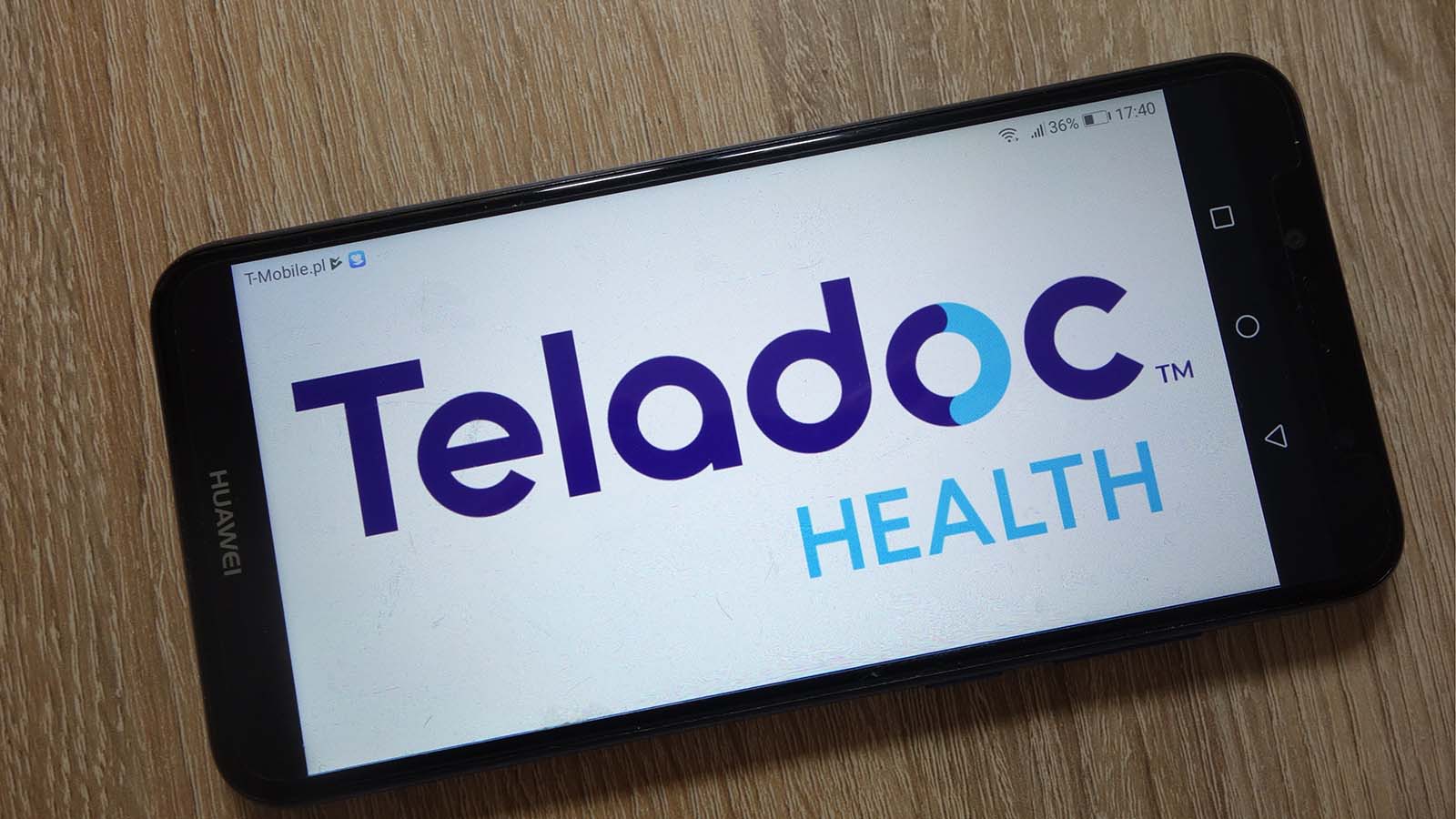Teladoc Health (NYSE:TDOC) stock has rallied 132% so far this year. But frankly, I don’t think that’s enough.

After all, I’ve been a bull on TDOC stock for years now. Nothing this year has changed that. If anything, the past eleven months have only strengthened my optimism.
Overall, Teladoc has closed a transformative, and intelligent, merger. Its growth remains enormously impressive. And the novel coronavirus pandemic provides an obvious catalyst to telehealth adoption in the U.S. and worldwide.
And yet, investors of late have mostly shrugged. TDOC stock broke $200 for the first time all the way back in late April. It still trades modestly below that level as I write this.
However, what appears to be happening is that investors are looking forward to the end of the pandemic. In recent weeks, we’ve seen big banks and airlines and other cyclicals post solid rallies.
But the end of the pandemic hardly means the end of Teladoc’s growth. That growth is only beginning, which is why I believe TDOC stock should have continued to rally — and why I believe it will do so at some point in the not-too-distant future.
‘Pandemic Winners’
There are two types of so-called “pandemic winners.”
The first is the group of companies who received direct, short-term boosts from the pandemic itself. PPE (personal protective equipment) manufacturers are an example. Some, though not all, vaccine and treatment developers fit as well. In tech, telehealth stocks like TDOC, videoconferencing providers and online retailers all saw an immediate increase in demand driven by “stay at home” orders.
Moreover, many more companies fit into the second type: companies that are benefiting from pre-existing trends that have been accelerated by the pandemic. Think cloud providers. Online gambling stocks have rallied even with shutdowns in the sporting world pressuring near-term revenue, because investors believe the budgetary impact of the pandemic will accelerate legalization in the U.S.
For these companies, 2020 results aren’t necessarily improving, as is the case with more immediate winners. Nonetheless, the outlook for 2021 and beyond — when normalcy returns — actually is brighter than it was at the beginning of the year.
Twin Tailwinds
Right now, investors are treating Teladoc like it’s the first kind of company. Trading in PPE manufacturers or direct COVID-19 plays looks quite similar to that of TDOC stock. There’s a big spike in March (or the spring by latest), followed by mostly sideways moves.
And Teladoc did get a short-term boost from the pandemic, for obvious reasons. In a bid to minimize in-person contact, medical practitioners pivoted quickly to telehealth. That, in turn, accelerated Teladoc’s growth. Revenue in the first quarter, for instance, increased 41% year-over-year. It rose 85% in Q2 and more than doubled in the third quarter.
But investors seem to be forgetting that Teladoc is a long-term winner, too. Like e-commerce or cloud computing, telehealth is a growth trend that predates the pandemic. Telehealth adoption was going to happen anyway; now it’s just going to happen at a faster rate.
After all, customers acquired in 2020 aren’t leaving in 2021. The factors driving telehealth, like a steadily aging population and the need to lower health care costs more broadly, will remain once the pandemic is thankfully gone.
Yet, in a market that has rewarded so many sectors facing accelerated growth, TDOC stock has been left out of the rally.
The Case for TDOC Stock
Collectively, that underperformance seems driven by a focus on the near-term boost from the pandemic. Frankly, there isn’t another option.
The merger with Livongo Health seems like a masterstroke. Some investors seem to believe that Teladoc overpaid: TDOC stock dropped 10% on the announcement. But shares also were at an all-time the day before, and actually have slipped modestly even following that plunge.
Even if Teladoc did overpay, it made a merger that made a ton of sense strategically. Teladoc’s platform and Livongo’s base of patients managing chronic conditions are perfectly complementary. And the underperformance even since the post-announcement plunge suggests another factor is at play.
Some skeptics might point to valuation. Certainly, Teladoc stock isn’t cheap, at over 20 times this year’s revenue pro forma for the Livongo merger. But TDOC stock should trade at a high multiple to revenue, given that profit margins at maturity will be enormous.
Meanwhile, the market has been happy to pay up for leaders in markets with huge potential growth. With market share near 75% by one estimate, Teladoc unquestionably is the industry’s leader. And, again, telehealth is a massive long-term opportunity.
A simple process of elimination suggests that the core reason is that investor attention has moved elsewhere, to stocks whose results will get greater benefit from a return to normalcy. But Teladoc will continue to grow even once its pandemic-driven tailwind has faded. And the market will figure that out eventually.
On the date of publication, neither Matt McCall nor the InvestorPlace Research Staff member primarily responsible for this article held (either directly or indirectly) any positions in the securities mentioned in this article.
Matthew McCall left Wall Street to actually help investors — by getting them into the world’s biggest, most revolutionary trends BEFORE anyone else. Click here to see what Matt has up his sleeve now.
